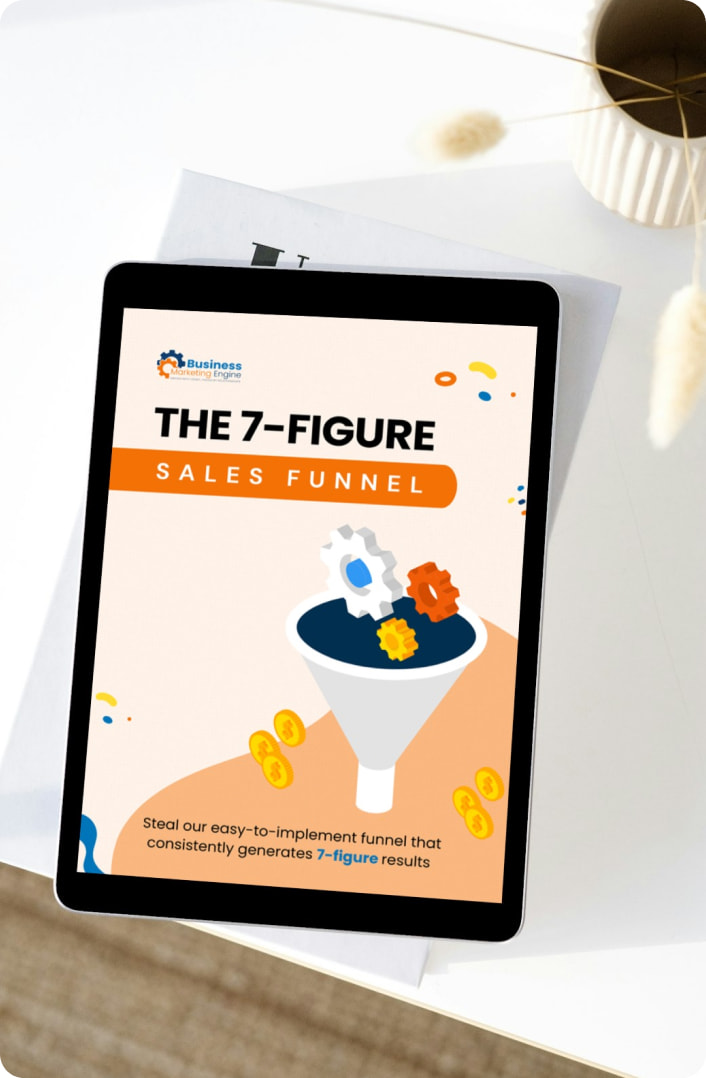More than 9.6 million results appear when you search for a “marketing plan template” on Google, a huge indicator of the vast number of people who are still looking for ways to make their marketing more effective by creating a marketing plan. A marketing plan template is one way to do that — a step-by-step action guide with questions that prompt you to look at your marketing from a new perspective.
Philip Kotler, who many have called the father of modern marketing, sees the value of a written strategy.
“You should never go to battle before having won the war on paper,” he said. “It’s more important to do what is strategically right than what is immediately profitable.
A marketing plan template is the strategic step to take when you want to find your marketing department’s overall strategy. It helps you to look at the important components of marketing: product, placement, price, and promotion, focusing on the promotion by breaking the category down into the pertinent details. Spelling each step out can help you to maximize your efforts and become a more efficient marketer.
Using a template helps you to build the outline for your entire plan, covering three areas:
- Who do you intend to reach through your marketing?
- What do you need to market to that audience, and how will you use those tools?
- How will your marketing accomplish your goals?
However, with so many different marketing plan templates available, there are a few things to keep in mind.
Why You Need a Marketing Plan Template
Peter Drucker, a famed business consultant, noted the importance of marketing in business and growth.
“Because the purpose of business is to create a customer, the business enterprise has two — and only two — basic functions: marketing and innovation. Marketing and innovation produce results; all the rest are costs. Marketing is the distinguishing, unique function of the business.”
Marketing is the backbone to building a successful business, as it takes your products or services directly to the people who are interested in purchasing them. If marketing is as vital as Drucker says it is — why wouldn’t you want to create a marketing plan?
- A marketing plan spells out your unique selling proposition — what makes you you. It spells out who you are and why a customer should choose you over the competition. When determined correctly, the USP can be a powerful tool used in e-mails, on your Web site and in blogs, in print marketing, and on social media, to emphasize the difference between your brand and everyone else.
- A marketing plan helps you develop brand awareness. It encourages and promotes your brand and everyone involved in your marketing department to bring consistent and accurate representation of your brand across any and all channels. A frequently repeated message is the one that will stand out; for example, “Just Do It” and the trademark swoosh are instantly recognizable parts of Nike’s marketing. The slogan was launched in 1988, and since then has become a lifestyle and mantra for athletes, amateurs, and the company itself.
- A marketing plan helps you to take full advantage of your resources. Whether you are a skilled writer producing quality content or want to redesign your Web site, a marketing plan helps you whittle away the words until you get to your true message. Once you’ve discovered that, you can focus, shape and design your Web site and words, along with keywords that will expand your reach through search engine optimization. Additionally, you’ll take an inventory of the different platforms you have available, as well as any new technology that can help you further your goals.
If you’ve never created a marketing plan before, using a marketing plan template should be the first step. A template is a thorough questionnaire that encourages you to look at the following information, all of which is vital to a plan that will accomplish the goals and objectives you’ve set out:
- Target market and research
- Sales pitch or copy deck
- Online options, like social media, e-mail, and Web site
- Sales and conversion data
- Advertising channels — both online and traditional
- Key performance indicators that show measurable results
A template is the map to your marketing map — guiding you as your create a guide for your marketing activity and goals. It helps you to narrow down your daily work and refocus your activity on achieving benchmarks and producing results. A marketing plan template starts by helping you to look at your marketing activity in a new light.
Templates can be used for project-specific campaigns, or they can be created for overall corporate marketing, and you can use either one by itself, or and marry it with the other, with the sub-campaign as a part of the marketing plan as a whole. However you choose to use a marketing plan template, though, you’ll find that the formal, written organization and structure will help you advance your message and get results.
What to Look for in a Marketing Plan Template
A good marketing plan template is not necessarily a fill-in-the-blanks file that you download, answer, and print, although those exist. A good plan is one that prompts you to think critically about each different facet you’ll be using in your own marketing efforts.
- Research, testing, and analysis is important in marketing, as knowing what has not worked in the past can help direct your future efforts. A good marketing plan template includes areas for you to learn more about your target audience, and gives you components to consider that you may have previously overlooked.
- Whether you’re talking about your Web site, your social media accounts, or your print press releases and flyers, a good marketing plan template encourages you to look at the different platforms available to you and to think about how you might best be able to use them to further your company’s message.
- Goals are an incredibly valuable part of a marketing plan — if you don’t know where you’re going, you won’t know how to get there. A good marketing plan template will not only include areas for you to see if you are on track with your efforts, but also encourage you to see if you’re really meeting your clients’ needs.
6 Marketing Plan Template Tips
- Treat it as a living document: No matter how much time you spend preparing your document, researching and analyzing the data, and getting to know your target audience, you’ll soon see that you can’t predict the future, and your marketing plan doesn’t necessarily fit as well as it had when you wrote the plan. Unlike style books, employee handbooks, or rules and regulations, a plan is a set of goals and action steps that, when needed, can be modified for a variety of reasons. This plan should be something you’re referring to at least weekly; at best, it should be open on your desk every day as the guide that points you toward your ultimate marketing goals.
- Make your template your own: The template is just that — a guide that can be adapted and customized to fit your business needs. If you’re new to the field and looking to get organized, check out this marketing plan template. It’s a fantastic, thorough piece that takes you through all of the questions you need to answer. Once you’ve answered those questions, you may find that you work better with certain formats and styles. For me, I’ve taken my marketing plan template and supplemented it with a monthly calendar sheet and a sidebar that contains my goals and results, with steps clearly spelled out on the calendar. I like color coding, as it helps me keep track of the specific goal I’m working on completing — you may find that once you’ve answered the questions, using a spreadsheet, chart, or list helps you to stay organized.
- Fill out the questions first: Many people want to jump into writing their marketing plan with little to no background knowledge or research to back up their plan and action steps. In the template I shared earlier, you’ll find a series of 12 questions, along with a guide to answer each question — which include seeking out information on your current sales data, your Web site analytics tools, and your target market. It will be very challenging to develop steps that will allow you to market an undefined product or service to an unknown audience. Research your competitors, your customers, and your own company’s internal strengths and weaknesses, and external opportunities and threats. This can be broken down for different goals in your marketing plan, as well; getting a better idea of the bigger picture is a valuable part of using a marketing plan template to create your own plan.
- Keep in mind, marketing plan templates are tools: A marketing plan isn’t a good or evil, it’s a piece of paper that will help you decide and define how your business will be presented. The tool will help guide the conversations you’ll have with your customers and target audience, and will give them the information they are looking for to help make a decision. It helps you to find out where your audiences are, both mentally and physically, and meet them in that spot.
- Keep it simple: The marketing plan template I linked to earlier is only one page. Why? Well, many marketers advocate for as short as possible. Jim Horan wrote a book — and subsequently developed an entire company — around the concept of a one-page plan.
“It causes very busy people to stop and think,” Horan told Forbes. “As they start to write it confirms both their clarity and their confusion.”
A one-page, or at least short, marketing plan is manageable to read while still getting the information across, and doesn’t leave you feeling overwhelmed or unable to reach the goals. It presents well to upper management in big companies, and keeps leaders focused on the central message of the company’s message and motivation. In small companies, it serves as unifying piece for all employees to use when presenting the company.
- Use it: The most important takeaway from a marketing plan template is that it’s made to be used. You won’t see any results from a template that lays on your desktop, empty. And once you’ve filled out the template to create your own marketing plan, use that, too. Too many people hesitate to take the first step in using the template to create a marketing plan that works, and many others will create a marketing plan and then never look at it again.
While the Content Marketing Institute is focused primarily on content marketing, they note that only 35 percent of content marketers have a documented strategy — in other words, slightly more than one-third of them are using a content marketing plan. The CMI notes that research has continuously shown that those who document their strategy are more effective in each different area of their content marketing.
The same goes for all types of marketing. A document is a tangible plan that helps you stay focused, provides a checklist and guide to help you move forward and complete tasks, and can be adapted to the different situations you might encounter. Once you’ve downloaded your marketing plan template, start to fill it out — and jump right into putting it in action. Waiting days, weeks, or months to implement your marketing plan distances you from the mindset and excitement that helped you to create the plan, and you may find that you feel less inspiration as you develop campaigns.
Have you used the template provided? I’d love to hear your experience — did it change your perspective on your marketing plan? What steps will you take this year to further your marketing?
If you’d like some feedback or support implementing your marketing plan, contact us today. You’ll get a free consultation and practical steps that will help to make your marketing more effective.








Comments are closed.